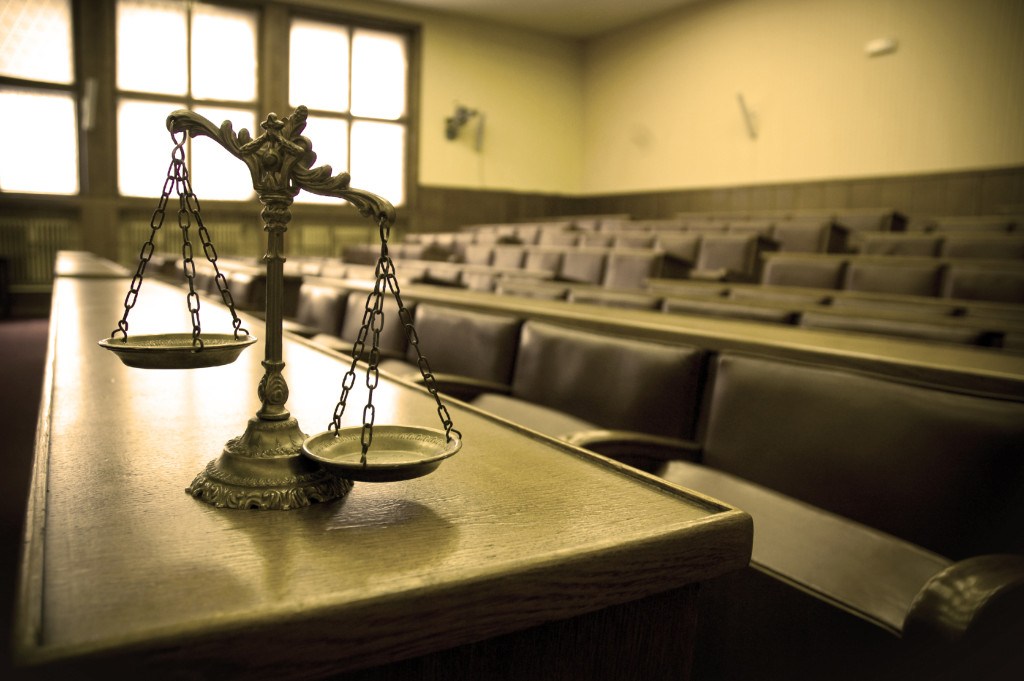The criminal justice system is something that few people think about until they are arrested or otherwise accused of committing a crime. As such, people are often only superficially familiar with the court system and how it works in a criminal matter. Thus, many people who are facing criminal charges often simply ask, “What will happen and what court hearings and processes will I face after being arrested?”
The experienced criminal defense attorneys of the Law Firm of John J. Zarych can answer this question and any others you may have about the criminal justice process in New Jersey. Whether you were arrested in Atlantic City, Wildwood, Cape May, Brigantine or somewhere else in South Jersey our criminal defense team can fight for you.

Immediately Following your Arrest: Booking, Grand Jury, & Indictment
Immediately following your arrest, you will be booked at a police station or other holding facility. Depending on the nature of the crime committed, you may be held or Released on Own Recognizance (ROR) with a citation or ticket listing the crimes you allegedly committed and your date for a first appearance in court. In any case, bail must be set within 12 hours of the issuance of a criminal complaint in New Jersey. If bail is required and bail cannot be otherwise posted, some individuals with make an arrangement with a bail bondsman to post bail on their behalf.
While a prosecutor retains the right to downgrade, dismiss, or divert a case if he or she does not take such action sufficient evidence for a Grand Jury to retain an indictment is required. A grand jury considers evidence presented by a prosecutor and determines whether sufficient evidence has been presented to sustain formal charges against the accused. When a majority of the 23 grand jurors return an indictment against the accused, the criminal proceedings against that individual will continue. If the grand jurors decline to return a true bill against the defendant charges may be dismissed, downgraded, or remanded back to a municipal court as a disorderly persons charge which is similar to a misdemeanor under New Jersey law.
Facing the Charges Behind Your Arrest: Pre-Arraignment, Arraignment, & Plea Bargains
All individuals charged with a crime in New Jersey will face a pre-arraignment process within 21 days of their indictment by a grand jury. During the period leading up to this conference, discoverable evidence is available for review by the defendant or the defendant’s attorney. At this point the defendant or the defendant’s attorney should begin to think about the legal approach to the matter including whether Pre-trial Intervention (PTI) or a plea bargain is a possibility.
The arraignment will be held no more than 50 days after an indictment is returned by a grand jury. At the indictment, the accused individual will be required to plead “not guilty” or “guilty.” In other instances, the defendant may enter a “guilty” plea to lesser charges as part of a plea deal. However, before agreeing to pleading guilty to criminal charges of any level, a criminal defendant should fully understand the formal and informal consequences of a guilty plea. In still other circumstances he or she may wish to apply to enter into the PTI program. The PTI program can protect people who made an isolated mistake from having a permanent criminal record.
The Conclusion of a Criminal Matter in New Jersey: Trial, Verdict, & Potential Sentencing
Before having their day in a court of law, the defendant is likely to face a number of status conferences and pretrial conferences. At these meetings, negotiations over a plea deal can continue. At a pretrial conference, a plea can be entered.
If the matter is not settled in pretrial meetings, it will proceed to trial. At trial both side will present relevant evidence to a jury of the defendant’s peers. In some cases, the defendant may choose to waive his or her right to a jury trial, but such action should only be taken after a careful consultation with an experienced criminal defense attorney. Regardless of the approach decided upon at trial, a defendant in most trials will be found “not guilty” or “guilty” by a judge or jury. If a person is found “not guilty”, he or she is typically free from further obligations to the court. However, a defendant who is found guilty will be considered to have been convicted. In this scenario, a judge will set a date for sentencing and a presentencing investigation will begin.
While some crimes are subject to mandatory minimums, other charges maintain at least a degree of judicial discretion over the ultimate penalty imposed. The judge will typically weigh a number of factors known as mitigating and aggravating factors. Mitigating factors tend to explain certain types of illegal behavior, though they are not an excuse. Aggravating factors show why the crime was particularly egregious. The prosecution will typically highlight aggravating factors and push for a harsher sentence. An experienced criminal defense attorney will work to ensure that a judge has a comprehensive picture of the conduct and is aware of all mitigating factors.
Facing the Criminal Process after an Arrest in New Jersey?
If you have been accused of committing an indictable offense (felony) in New Jersey like gun charges, drug charges, or white collar crimes the experienced criminal defense lawyers of the Law Offices of John J. Zarych can explain the situation you face and fight for you. Likewise, if you face disorderly persons offenses (misdemeanors) like DUI or certain marijuana charges, we can also fight for you. To schedule a free, confidential initial consultation call our firm at (609) 616-4956 today. Or schedule an appointment at our law offices in Atlantic City, Wildwood, Cape May, or Northfield, New Jersey online.







